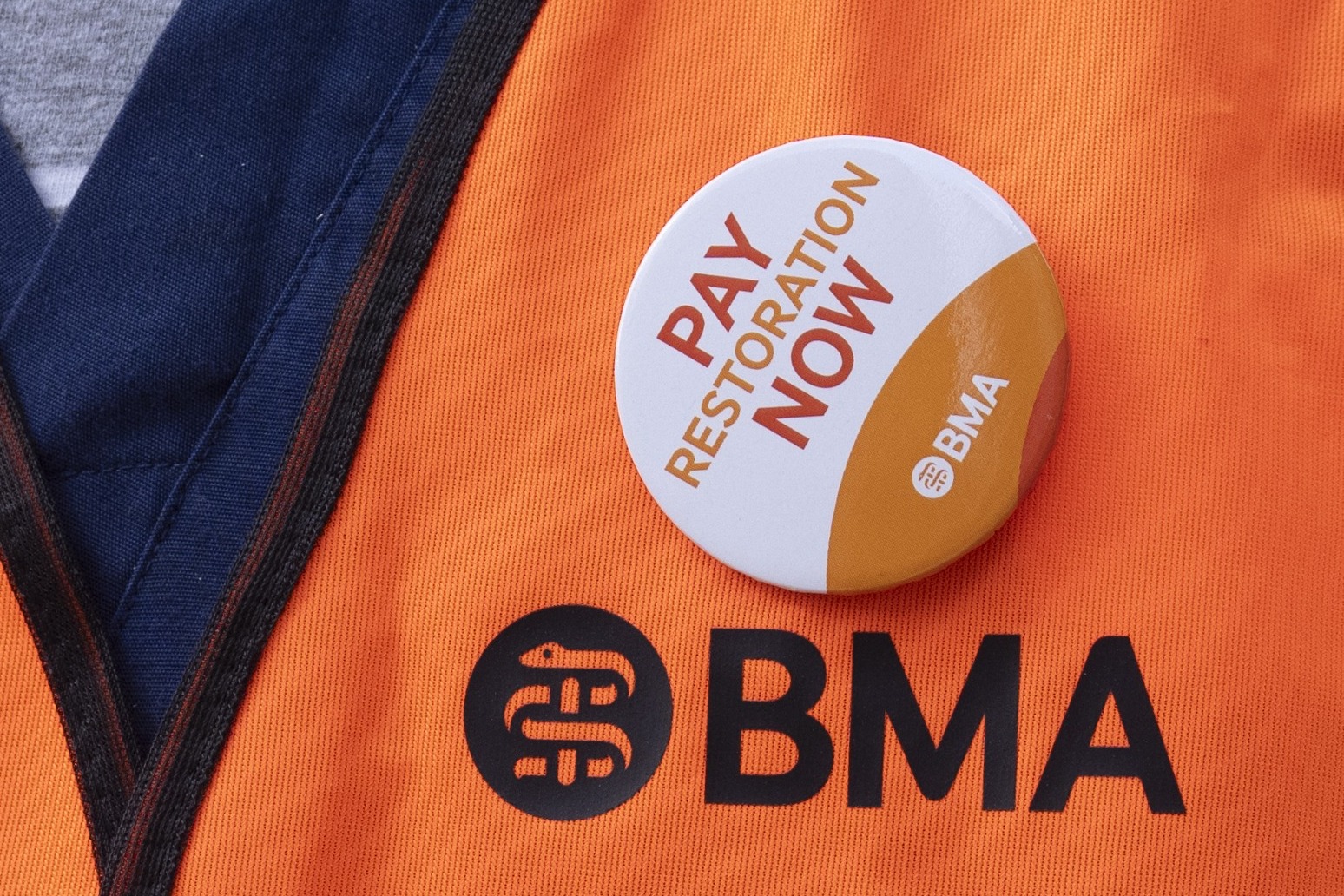
NHS facing difficult start to the year as six-day strike looms, boss warns
A lengthy walkout by junior doctors is set to being tomorrow morning
The NHS may have to deal with “one of the most difficult starts to the year” it has ever faced, a medical leader has warned.
National medical director Professor Sir Stephen Powis believes the service is set to be “on the backfoot” as 2024 starts with an unprecedented six days of strikes over pay by junior doctors in England that will impact on almost all routine care, with consultants covering as the NHS prioritises urgent and emergency cases.
Flu and winter illnesses, combined with rising staff absences due to coronavirus, are set to add more pressure to services that will already be stretched by the strike.
Sir Stephen warned: “This January could be one of the most difficult starts to the year the NHS has ever faced.
“Six consecutive days of industrial action comes at one of our busiest periods – the action will not only have an enormous impact on planned care, but comes on top of a host of seasonal pressures such as Covid, flu, and staff absences due to sickness – all of which is impacting on how patients flow through hospitals.
“Our colleagues across the health service are doing their very best for patients every day with extensive preparations in place, but there’s no doubt they are starting 2024 on the back foot – not only will action impact next week, it will continue to have a serious impact in the weeks after as we recover services and deal with additional demand.”
Junior doctors are set to walk out from 7am on January 3 until 7am on January 9.
The strike amounts to 144 consecutive hours of industrial action – the longest in the 75-year history of the health service.
The British Medical Association (BMA) union wants junior doctors to get a 35% pay rise, which it says would restore their real earnings to 2008 levels, but the Government says this is unaffordable.
Hopes the walkout could be called off are fading as a “stand-off” between the Government and the BMA is holding firm , according to NHS Confederation chief executive Matthew Taylor.
He told BBC News on Monday that “even at this late stage, an intervention could make a difference”, and the industrial action will leave hospitals, GP surgeries and other services “skating on very thin ice”.
He said: “Unfortunately it feels like there is a stand-off which is the Government is refusing to enter negotiations unless the junior doctors call off the strike action, and the junior doctors are refusing to call off strike action unless the Government commits to investing more money – and that is a pity.
“These days are going to be very damaging to us.”
Sir Stephen said people who need care during the walkout can use 111 online in the first instance, or call 999 and use A&E in life-threatening emergencies. GP services and local pharmacies will also still be available.
An agreement allows striking junior doctors to be recalled for major incidents and in extreme circumstances.
The confederation is urging the BMA to respond quickly to requests for junior doctors to be recalled and for the judgment of senior medics to be “trusted” when they say they need cover from those on strike.
Mr Taylor said: “Many NHS trusts will have thin rotas and will be in a highly vulnerable position as they enter what is widely regarded as the busiest week of the year for local NHS services.
“Parts of the NHS will be skating on very thin ice, and they will need the BMA to back any recall requests for junior doctors when services find themselves under extreme pressure.”
He said under these circumstances, the focus must now be for every NHS leader and their staff to try and mitigate “as many of the considerable risks that they face as possible”.
He added: “To face almost 150 hours of continuous stoppages is a serious and unprecedented risk – and one that NHS leaders and their staff have never experienced before.
“The good news is that the NHS has again prepared extensively and has had to become adept at planning for strikes.
“While they will again do all they can to mitigate the risks, especially for patients needing emergency care, they have again been left with no choice but to schedule in less activity in anticipation of the strikes.
“That means more delays for patients who have faced lengthy waits for routine treatment.”
Figures released last month showed more than 1.2 million appointments have had to be postponed because of industrial action in the NHS since it began in December 2022.
Strikes by junior doctors last month caused around 86,000 appointments to be put back.
Dr Rob Laurenson and Dr Vivek Trivedi, co-chairs of the BMA’s Junior Doctors Committee, said that even “at this late hour” the Government could put forward a credible offer.
Exhausted and demoralised junior doctors are facing the brunt of underinvestment, high waiting lists and lack of resources, they added.
A Department of Health and Social Care spokesman said: “We urge the BMA Junior Doctors Committee to call off their strikes and come back to the negotiating table so we can find a fair and reasonable solution, and so we can all get back to focusing on patients and their care.
“We know how distressing it is for patients who have had appointments and procedures cancelled, and we have provided £800 million to ensure patients continue to receive the highest quality care this winter and ease pressure on hospitals impacted by industrial action.
“NHS staff are working hard to prioritise resources to protect emergency treatment, critical care, neonatal care, maternity, and trauma, and to ensure we prioritise patients who have waited the longest for elective care and cancer surgery.”
Published: by Radio NewsHub